Description
Mojaloop Foundation leaders will be presenting at Singapore Fintech Festival 2022:
Building Cross-border Payments for an Interconnected World
2 Nov, 12:30-2:30 PM SGT
The roundtable will discuss:
- ASEAN’s vision for cross-border payments interoperability by 2025 – including the near and long-term priorities, challenges and opportunities.
- Developing the optimal model for inter-region connectivity
- Leveraging Web3 technology (e.g. DLT, CBDCs etc.) to build more efficient, cheaper and safer payment rails for the future
Participants:
- Vanessa Lin, Managing Director, Head of Commercialization and Digital,
BNY Mellon - Alan Hwong, Group Head of GTS Payments, TFX & Digital Currency, DBS Bank
- Kelvin Li, Head of Global Fund Platform, Ant Group
- Richard Pu, Vice President, Co-head of Tencent legal, Tencent Group
- Mamerto Tangonan. Deputy Governor, Bangko Sentral ng Pilipinas
- Andrew McCormack, Centre Head, Bank of International Settlement Innovation Hub – Singapore Centre
- P Vasudevan, Chief General Manager, Reserve Bank of India
- Chia Tek Yew, Vice Chairman, Singapore & Head of Insurance, Asia Pacific, Oliver Wyman
- Steven Haley, Director of Market Development and Partnerships, Mojaloop Foundation
- Alessandra Perrazzelli, Deputy Governor, Bank of Italy
- Aaron Wong, CEO, PayPal Pte Ltd (Singapore)
- Dr. Serey Chea, Assistant Governor & Director General of Central Banking, National Bank of Cambodia
- Budsakorn Teerapunyachai, Senior Director of Payment Systems Policy Department, Bank of Thailand
- Jeremy Tan, CEO, Liquid Group Pte Ltd
- Jo Yeo, Head, Payments Development & Data Connectivity, Monetary Authority of Singapore (Moderator)
- Raihan Zulimran, Team Lead, Next Gen Payments, Monetary Authority of Singapore (Moderator)
Achieving Universal Financial Inclusion with Interoperable, Instant Payment Systems
2 Nov, 4:30 PM-5:00 PM SGT
Looping the 1.4 billion financially excluded citizens into the digital economy will require reducing the costs of sending money both nationally and across borders. According to the World Bank, this can be accomplished with more multipolar and interoperable instant payment systems – especially those designed with financial inclusion in mind.
This session will address how interoperability and open source can play a role in how central banks can advance financial inclusion and ensure that every person can make affordable, instant payments across borders with anyone else in the digital economy using a simple mobile phone. Historically, every $100 a migrant worker from Singapore sent back home to countries in Asia or Africa on banking and fintech rails costs between $6 to $15 in fees. Yet, if central banks could connect two, interoperable fast payment systems, the cost could dramatically be reduced to meet or beat the SDG’s ultimate target of $3 (3%). In this fireside chat, learn how open, interoperable, instant payment systems could help achieve universal financial inclusion, lower the cost of transactions both nationally and across borders and increase the frequency of transactions in ways that would boost respective countries’ GDPs.
Speakers:
- Sopnendu Mohanty, Chief FinTech Officer, Monetary Authority of Singapore, and Board Advisor, Mojaloop Foundation
- Andrew McCormack, Centre Head, Bank of International Settlement Innovation Hub – Singapore Centre
- Konstantin Peric, Deputy Director, Financial Services for the Poor, Bill & Melinda Gates Foundation, and Chair, Mojaloop Foundation
- Paula Hunter, Executive Director, Mojaloop Foundation (Moderator)
Achieving Universal Financial Inclusion with CBDC – Cross-Border to Government-to-Person Payments (G2P)
3 Nov, 4:30-5:00 PM SGT
CBDCs (Central Bank Digital Currencies) offer countries the ability to settle funds across borders more quickly and cheaply by drastically reducing the cost of transfers, particularly transactions of higher value. The benefits for trade and remittances are clear, but as large assistance programs become more digital, reducing settlement times and costs further is paramount to avoiding major bottlenecks to cost, reach, and efficiency. COVID-19 demonstrated that countries investing in instant payments infrastructure benefitted greatly by being able to send much-needed financial assistance quickly to targeted groups. However, these payments represented only a fraction of the existing domestic emergencies and international assistance programs needed for G2P (Government-to-Person Payments) and cross-border payments for livelihood support. While G2P direct assistance programs are crucial for those living in poverty, much assistance also comes from foreign donors and philanthropies, who want to settle funds cross-border internationally quickly, but not quickly enough to disclose the traceability of funds. This presentation will examine how pairing CBDCs with instant payment services enables funds to be traced to the end beneficiary in real-time with robust real-time fraud, combating the Financing of Terrorism (CFT) and Anti-Money Laundering (AML) management. Beneficiaries not only receive their funds instantly, but also institutions sending payments abroad can mitigate their own risks. Most importantly, with interoperable instant payment systems, the beneficiaries can keep more of their funds digital through a variety of remittance and merchant transactions, reducing overall cost and providing greater visibility to donors and regulators.
- Learn how central banks, hub operators, and other financial services firms are using CBDCs and open source approaches to deepen financial inclusion from G2Ps to cross-border payments.
- See examples of how interoperable, open-loop networks and instant payments systems are making it possible to achieve financial inclusion and accelerate new real-time payments offerings in Singapore, Myanmar, and the Philippines.
- Understand the need to balance innovation and risk-based approaches (to money laundering and terrorist financing in particular) to achieve financial inclusion.
Speakers:
- Nick Drury, CBDC COE Director, Mojaloop
- Steve Haley, Director of Market Development and Partnerships, Mojaloop Foundation

